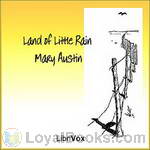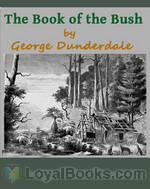|
Books Should Be Free Loyal Books Free Public Domain Audiobooks & eBook Downloads |
|
|
Books Should Be Free Loyal Books Free Public Domain Audiobooks & eBook Downloads |
|
History Books |
|---|
|
Book type:
Sort by:
View by:
|
By: Cassius Dio Cocceianus | |
|---|---|
 Dio's Rome, An Historical Narrative
Dio's Rome, An Historical Narrative
| |
By: Angelo S. Rappoport (1871-1950) | |
|---|---|
 History of Egypt From 330 B.C. To the Present Time, Volume 10 (of 12)
History of Egypt From 330 B.C. To the Present Time, Volume 10 (of 12)
| |
By: Maurice Maeterlinck (1862-1949) | |
|---|---|
 The Wrack of the Storm
The Wrack of the Storm
| |
By: Henry L. Mencken (1880-1956) | |
|---|---|
 A Book of Prefaces
A Book of Prefaces
| |
By: Ray Vaughn Pierce | |
|---|---|
 The People's Common Sense Medical Adviser
The People's Common Sense Medical Adviser
The People's Common Sense Medical Adviser In Plain English, Or, Medicine Simplified. By R.V. Pierce, M.D. INTRODUCTORY WORDS. Health and disease are physical conditions upon which pleasure and pain, success and failure, depend. Every individual gain increases public gain. Upon the health of its people is based the prosperity of a nation; by it every value is increased, every joy enhanced. Life is incomplete without the enjoyment of healthy organs and faculties, for these give rise to the delightful sensations of existence... | |
By: Harriet Martineau (1802-1876) | |
|---|---|
 The Hour and the Man, An Historical Romance
The Hour and the Man, An Historical Romance
| |
By: Clara Erskine Clement Waters (1834-1916) | |
|---|---|
 A History of Art for Beginners and Students Painting, Sculpture, Architecture
A History of Art for Beginners and Students Painting, Sculpture, Architecture
| |
By: Richard Hakluyt (1552-1616) | |
|---|---|
 Discovery of Muscovy
Discovery of Muscovy
| |
By: Filson Young (1876-1938) | |
|---|---|
 Christopher Columbus and the New World of His Discovery
Christopher Columbus and the New World of His Discovery
| |
By: Cyrus Thomas (1825-1910) | |
|---|---|
 The Problem of the Ohio Mounds
The Problem of the Ohio Mounds
| |
By: Richard D. Blackmore (1825-1900) | |
|---|---|
 Springhaven : a Tale of the Great War
Springhaven : a Tale of the Great War
| |
By: Elisha Benjamin Andrews (1844-1917) | |
|---|---|
 History of the United States, Volume 1
History of the United States, Volume 1
| |
By: F. Marion Crawford (1854-1909) | |
|---|---|
 Ave Roma Immortalis, Vol. 1 Studies from the Chronicles of Rome
Ave Roma Immortalis, Vol. 1 Studies from the Chronicles of Rome
| |
 Ave Roma Immortalis, Vol. 2 Studies from the Chronicles of Rome
Ave Roma Immortalis, Vol. 2 Studies from the Chronicles of Rome
| |
By: William Henry Pope Jarvis (1876-1944) | |
|---|---|
 The Great Gold Rush: A Tale of the Klondike
The Great Gold Rush: A Tale of the Klondike
Canadian journalist William Jarvis' gently fictionalized work recounts many of the countless fascinating tales of the Klondike Gold Rush in Canada's Yukon. (Introduction by Cathy Barratt) | |
By: John R. Lynch (1847-1939) | |
|---|---|
 The Facts of Reconstruction
The Facts of Reconstruction
After the American Civil War, John R. Lynch, who had been a slave in Mississippi, began his political career in 1869 by first becoming Justice of the Peace, and then Mississippi State Representative. He was only 26 when he was elected to the US Congress in 1873. There, he continued to be an activist, introducing many bills and arguing on their behalf. Perhaps his greatest effort was in the long debate supporting the Civil Rights Act of 1875 to ban discrimination in public accommodations.In 1884 Lynch was the first African American nominated after a moving speech by Theodore Roosevelt to the position of Temporary Chairman of the Republican National Convention in Chicago, Illinois... | |
By: Fay-Cooper Cole | |
|---|---|
 The Tinguian
The Tinguian
The Tinguian. Social, Religious, and Economic Life of a Philippine TribeBy Fay-Cooper Cole INTRODUCTION It seems desirable, at the outset, to set forth certain general conclusions regarding the Tinguian and their neighbors. Probably no pagan tribe of the Philippines has received more frequent notice in literature, or has been the subject of more theories regarding its origin, despite the fact that information concerning it has been exceedingly scanty, and careful observations on the language and physical types have been totally lacking... | |
By: Mary Hunter Austin (1868-1934) | |
|---|---|
 The Land of Little Rain
The Land of Little Rain
The Land of Little Rain is a book of sketches which portray the high desert country of southern California, where the Sierras descend into the Mojave Desert. Mary Austin finds beauty in the harsh landscape: "This is the sense of the desert hills--that there is room enough and time enough. . . The treeless spaces uncramp the soul." Her story begins with the water trails that lead toward the few life giving springs--the way marked for men by ancient Indian pictographs. Life and death play out at these springs... | |
By: Richard Henry Dana (1815-1882) | |
|---|---|
 To Cuba and Back
To Cuba and Back
| |
By: William Wells Brown (1814?-1884) | |
|---|---|
 Three Years In Europe
Three Years In Europe
William Wells Brown was born a slave, near Lexington, Kentucky. His mother, Elizabeth, was a slave--his father a white man who never acknowledged his paternity. Brown escaped slavery at about the age of 20. For many years he worked as a steamboatman and as a conductor for the Underground Railroad in Buffalo, New York. In 1843, he became a lecturer for the Western New York Anti-Slavery Society, and was a contemporary of Frederick Douglass.Brown went to Europe in 1849 to encourage British support for the anti-slavery movement in the United States... | |
By: George Dunderdale (1822-1903) | |
|---|---|
 The Book of the Bush
The Book of the Bush
While the world was young, nations could be founded peaceably. There was plenty of unoccupied country, and when two neighbouring patriarchs found their flocks were becoming too numerous for the pasture, one said to the other: "Let there be no quarrel, I pray, between thee and me; the whole earth is between us, and the land is watered as the garden of Paradise. If thou wilt go to the east, I will go to the west; or if thou wilt go to the west, I will go to the east." So they parted in peace.(excerpt from book) | |
By: John Morley (1838-1923) | |
|---|---|
 The Life of William Ewart Gladstone, Vol. 1 (of 3) 1809-1859
The Life of William Ewart Gladstone, Vol. 1 (of 3) 1809-1859
| |
 Critical Miscellanies (Vol. 1 of 3) Essay 1: Robespierre
Critical Miscellanies (Vol. 1 of 3) Essay 1: Robespierre
| |
 Indian speeches (1907-1909)
Indian speeches (1907-1909)
| |
By: Willis J. Abbot (1863-1934) | |
|---|---|
 American Merchant Ships and Sailors
American Merchant Ships and Sailors
| |
 The Naval History of the United States Volume 1
The Naval History of the United States Volume 1
| |
By: Edgar Fawcett (1847-1923) | |
|---|---|
 Some Reminiscences of old Victoria
Some Reminiscences of old Victoria
| |
By: Agnes C. Laut (1871-1936) | |
|---|---|
 Pathfinders of the West Being the Thrilling Story of the Adventures of the Men Who Discovered the Great Northwest: Radisson, La Vérendrye, Lewis and Clark
Pathfinders of the West Being the Thrilling Story of the Adventures of the Men Who Discovered the Great Northwest: Radisson, La Vérendrye, Lewis and Clark
| |
By: Frederick W. Hamilton (1860-1940) | |
|---|---|
 Books Before Typography A Primer of Information About the Invention of the Alphabet
Books Before Typography A Primer of Information About the Invention of the Alphabet
| |
By: Agnes C. Laut (1871-1936) | |
|---|---|
 Vikings of the Pacific The Adventures of the Explorers who Came from the West, Eastward
Vikings of the Pacific The Adventures of the Explorers who Came from the West, Eastward
| |